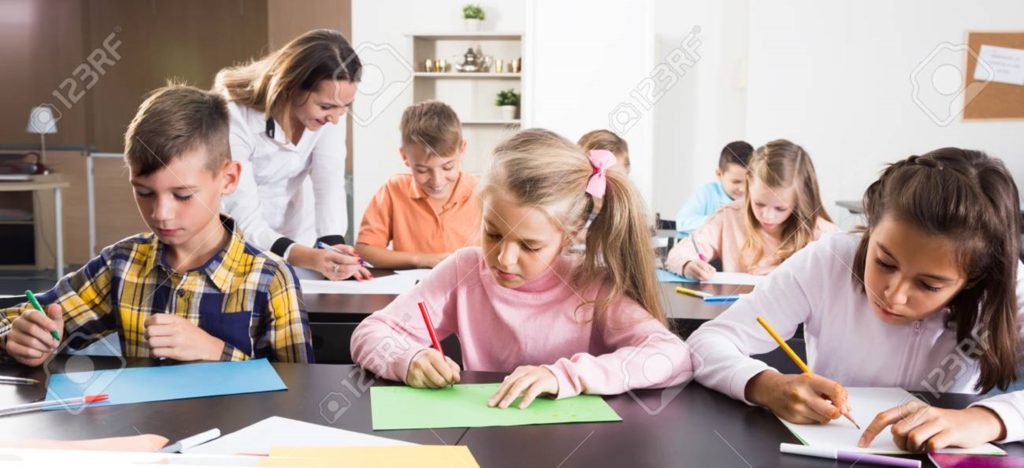I never chose to become a teacher. It was a pleasant surprise. The opportunity arose and I chose to grab it and I have never regretted it. It is true, the best things happen when we least expect it. This is about my initial days as a teacher and the lessons that I have learnt since.
-
You spend more time learning rather than teaching.

This is absolutely true. Most of the times, the children either come up with such creative ideas that you must test them or out of box thinking that changes your perception.
It is not just educationally that you learn but even emotionally. There is so much that a student teaches you. You learn about their theories, their lives, their homes. You learn about the three-legged cat that they helped that day. Never assume to know your students, because by the end of the day you will be proved wrong.
-
The importance of listening.
One of the key skills required to be a teacher. Listening. Do not just hear the things your students tell you, listen to them. There are times when frustration pushes the voices of your students to a steady buzz in the background, but this is when you need to listen the most.
For me it is the hardest when it’s the last period and there is still 20 minutes remaining for the bell. I am tired, cranky, basically a child myself but this is no excuse to stop. We must listen because there is so much, they want to tell us.

-
Patience, patience, and more patience.

I cannot stress this enough. When we choose to become educators, patience is the key, because a student’s curiosity knows no bounds. There are so many questions that they will ask us, some exciting and some toeing the line into the absurd. But we must explain them all to the best of our abilities.
There were times during an activity when everything goes perfectly yet one of my children decides now is the time to show her talent in gymnastics and upends the whole thing. Becoming angry is the simplest of things, yet it will not provide you a solution. Remember, anger is the first sign of defeat.
-
They observe more than you realize.
 The way we know when one of our students having a bad day, so do they. We tend to think that they may be young, but this is not the case. They are highly perceptive. They observe the changes in our moods, whether it be happy or sad.
The way we know when one of our students having a bad day, so do they. We tend to think that they may be young, but this is not the case. They are highly perceptive. They observe the changes in our moods, whether it be happy or sad.
This causes them to react accordingly. The greatest of harm lies when we are disgruntled at a particularly naughty child. It can impact them negatively. It is normal for a child to be overactive; it is a part of childhood. Discipline them yes, but never become disgruntled towards them, for a child this disgruntlement easily slides into them feeling we do not like them.
This can impact their mindset towards the teacher and at times even the subject. For a student, teachers feelings do matter.
-
Flexibility.

One of the most important things I have learned as a teacher is to always have a Plan B because, 8/10 times Plan A goes out the window.
This is to be expected when we work with children. All of them want a different thing and by the time we accommodate them all, what we have planned changes drastically. This shouldn’t lead us to panic or frustration. Accept it and flow accordingly. Be flexible and adapt to the changes. We expect the students to work with us, but we must work with them too.
-
Everything that can go wrong, will go wrong.
Murphy’s law is typically stated as: “Anything that can go wrong will go wrong”. As teachers though, we can swap out anything with everything. Mostly because we can never truly keep up with all the mischief makers in the classroom. By the time I managed to clean up one mess, three more appeared magically. I worked out a theory for it though: The amount of chaos in the classroom is directly proportional to the amount of free time and inversely proportional to work.
The goal is basically to keep them engaged. They have active minds and active hands, keep them interested in their tasks. Let them build, let them think, let them learn.

-
Its 24 x 7

Like most 9 to 5 jobs, we don’t get to throw everything into the locker and kick back our feet at home. We plan for the next day, the next lesson, the next incident and so on. We grade papers, correct books, design activities. We answer calls, send thousands of group texts reminding parents one thing or the other. Sometimes we spend entire weekends focused on this.
The list never ends.
-
They love you unconditionally.

A student’s love is unconditional. This was the best lesson I learnt. No matter how frustrated you get or how exhausted you become, its all worth it. Its worth seeing that smile on their face. A school is not built from mere bricks. It is built from the laughter and hopes of the children.
That “Aha!”, moment makes all the trouble you went through while teaching them worth it.
For the six hours that they spend in the school, you become the most valuable person for them. Its important we understand the weight of this.
We are not just teachers; we are the very foundation upon which they will move forward in life. Teach them so that they will want to learn tomorrow.






